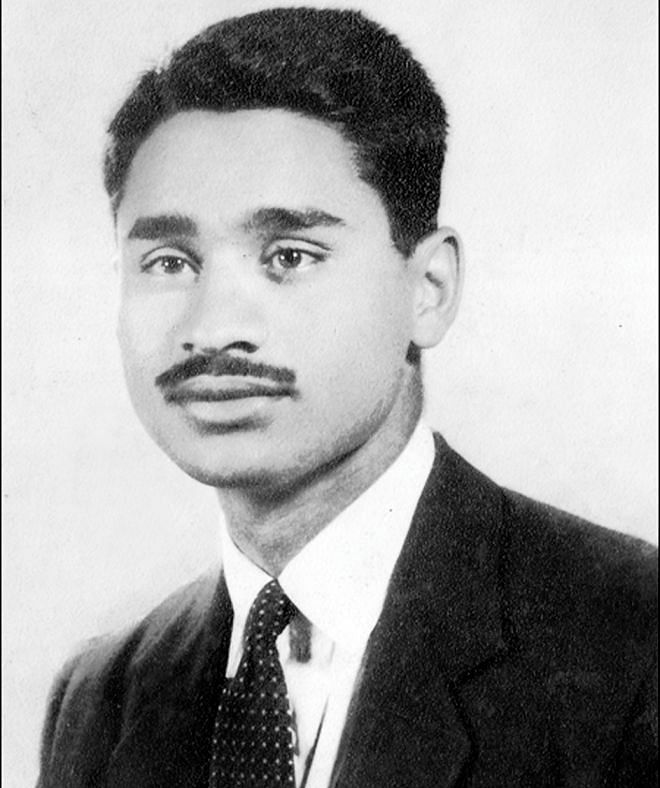Murder most foul . . .
Murder most foul . . .

LAWRENCE Lifschultz's reflections on the murder of Major General Mohammad Abul Manzur in June 1981 are, for the nation's political leadership as also for the people of Bangladesh, a broad hint that all past conspiracies should be investigated in their totality and the truth behind them revealed. The good part of our otherwise sad post-1975 history is that a beginning has been made, through bringing the assassins of Bangabandhu Sheikh Mujibur Rahman to justice. The process of a fresh new judicial look at the jail killings of November 1975 is also underway. All of which is a breath of fresh air, for they point to the slow climb back up to rule of law in this country.
And yet there are gaps in the Bangabandhu murder case that must be filled. Much more should have been done to explore and expose the deep conspiracy which went into the planning of the coup d'etat of August 15, 1975. Khondakar Moshtaque, the commerce minister who took over as Bangladesh's president once it became a certainty that Bangabandhu was dead, was never charged in the case. He should have been, seeing that every finger has always pointed to him as the most notorious among the cabal of coup planners. Despite the fact that he is dead -- and he was fortunate enough to die three months before the Awami League returned to power in June 1996 -- there is the obvious necessity to prosecute him in posthumous manner for the August 1975 tragedy. The depressing story of August 1975 will have gaping holes in it unless Moshtaque's role, as also that of men like Taheruddin Thakur, is inquired into.
There is a paramount need for a full, detailed and unambiguous inquiry into the circumstances that led to the killing of Major General Khaled Musharraf, Colonel Huda and Major Haider on the morning of November 7, 1975. There is the strong likelihood that the men who ordered their murder as well as the renegade soldiers who carried out the instructions of those men are yet around, ageing and physically and mentally in a state of decline. That, however, is no reason for them to escape justice. And that being the point, it is perfectly natural for citizens to demand that these men, having stayed a step ahead of the law after the commission of their criminality, be hauled up before a court of law. Musharraf and his two comrades were tenacious soldiers and brilliant tacticians in the War of Liberation. Pretending that they did not exist is an insult to the country.
There are, one can safely assume, a very large number of killers on the loose in this country. Just as Pakistan army officers who ordered and themselves committed genocide and rape in Bangladesh in 1971 are today an ageing or dying lot, there are former military officers, like the one (apart from Ershad) Lifschultz points his finger at over the Manzur murder, who have killed scores of other officers and soldiers and have never been punished. They instead rose to the top, taking the cream out of the socio-political cake for themselves and others like them. Those officers who subjected the thirteen army officers charged with General Zia's assassination to inhuman torture and subsequently had them hanged must surely be around, indeed could well be part of the social circuit today. If the collective national goal is a restoration of decency in the country, these criminally-minded officers should be placed before a court of law for their complicity in crime and tried in the larger national interest.
There is too, judging by the manner in which Justice Abdus Sattar acquiesced in the matter of transferring General Manzur from police to army custody in June 1981, a prime requirement to prosecute, posthumously, the man who took over as acting president of the country after the Zia murder. Justice Sattar knew Manzur would not live if the army took charge of him and yet he did not say no to General Ershad. Worse, he felt, as it now seems on reflection, little need to consider a presidential pardon for the thirteen falsely convicted officers. Conscience troubled him not at all.
That takes us back to the travesty of justice we have lived with since the execution of Colonel Abu Taher in July 1976. Every bit of evidence, every report on the so-called court martial of this courageous freedom fighter is a sad reflection on how General Ziaur Rahman perpetrated one of the most horrific crimes in the history of the country through a misuse of political authority. Again, as in the matter of President Sattar, it becomes important that President ASM Sayem be brought under a posthumous spotlight, for the simple reason that he was unwilling or afraid to say no to Zia at a time when he could have asserted his authority through refusing to countenance Taher's execution after that shoddy trial. An inquiry into the game resorted to by Zia ought to be initiated, for it is not right, in the larger perspective of history, that one who has committed manifest crime through denying his captive the rights that a prisoner is entitled to be allowed to go free.
The call of justice does not have space for holy cows. Now that questions, at once concrete and definitive, have been raised about the Manzur murder, the government can do two simple things. First, it can relieve General Hussein Muhammad Ershad of his responsibilities as the special envoy of the prime minister. Second, it can initiate a purposeful legal inquiry into the former military ruler's role or otherwise in the assassination of General Ziaur Rahman and the murder of General Abul Manzur, all acts committed in the space of four days.
We rest our case.
The writer is Executive Editor, The Daily Star.
E-mail: ahsan.syedbadrul@gmail.com